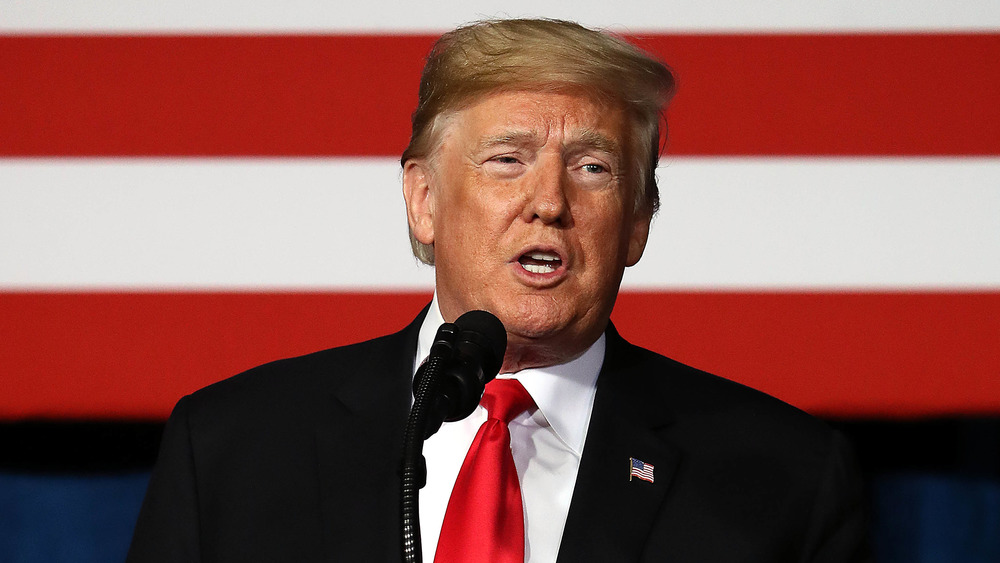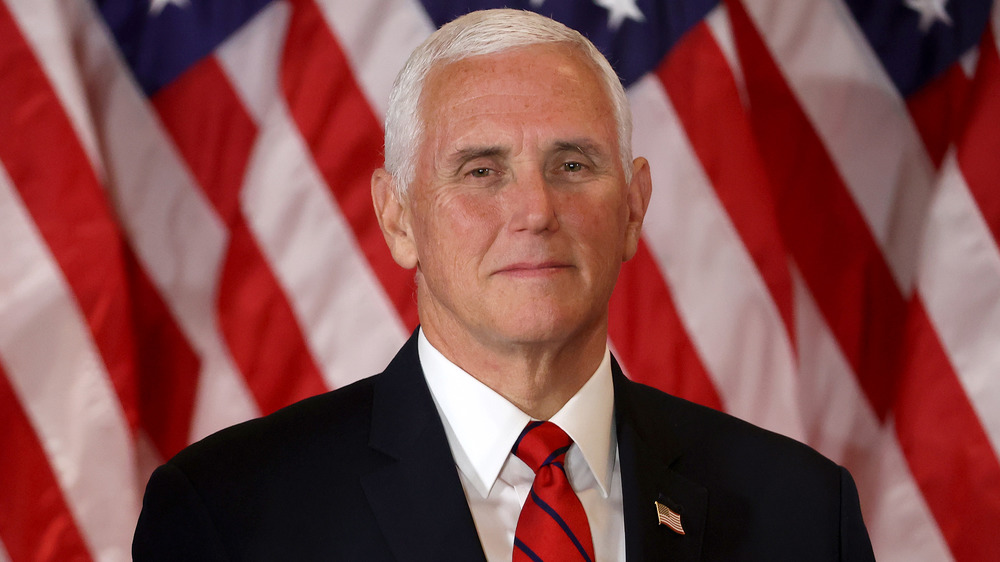Can Donald Trump Really Pardon Himself?
The election may be over, but Donald Trump is refusing to concede to President-elect Joe Biden. Trump has opened investigations into voter fraud and has declared himself the rightful victor, tweeting "I WON THIS ELECTION, BY A LOT!" on November 7.
A lot of people have wondered what will happen if Trump refuses to leave the White House and just how far his grab for power will extend. There's already speculation that Trump will run for president again in 2024. Others suspect that he is planning on pardoning himself.
While Trump has not been formally charged with any crimes, Elite Daily noted that he has been accused of many during his time in office including allegations of sexual assault, several investigations into his finances, and campaign misconduct. Trump and his campaign have denied any wrongdoing, but the president has made it clear that he could pardon himself if it's ever needed. "As has been stated by numerous legal scholars, I have the absolute right to PARDON myself, but why would I do that when I have done nothing wrong?" he tweeted in 2018.
Mike Pence could be the one to pardon Trump
The fact that Trump has not had any charges brought against him could be because of a legal precedent which states that "the indictment or criminal prosecution of a sitting President would unconstitutionally undermine the capacity of the executive branch to perform its constitutionally assigned functions." Many suspect that it is Trump's fear of being charged once he is out of the White House that is behind his refusal to concede. "He enjoys the protections the presidency gives him from indictment in multiple ongoing investigations on tax fraud, campaign finance violations, obstruction of justice, and more," Matthew Dallek, a professor of political history at George Washington University's Graduate School of Political Management told Elite Daily.
While no president has ever used their power to pardon themselves, Richard Nixon came close in 1974 when it seemed likely that he might be charged for his role in the Watergate scandal. The Office of Legal Council determined that Nixon could not pardon himself, but his vice president and successor, Gerald Ford, did after Nixon stepped down from the presidency.
Dallek said that this seems like a possible route for Trump, who "could resign before his term is over and elevate Vice President Mike Pence to assume the presidency for a mere six weeks," allowing Pence to pardon him.

